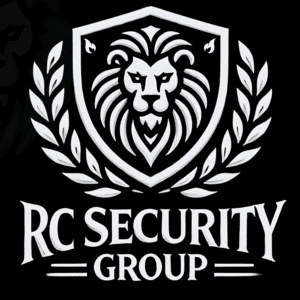If you hire security or run a business in Brisbane, you should know the local rules. These rules affect who can work as a guard, how you use CCTV, what weapons (if any) are permitted, alarm responses, and the penalties for breaking the law. Below is a clear, practical guide — written in short chunks and with bullet points where it helps.
Licence requirements — the basics
Anyone working in security in Queensland must hold the right licence. That includes crowd controllers, guards, cash-in-transit staff, and other roles. A business that provides security services also needs the correct authorisation. Always ask to see a current licence before any work starts.
Quick checklist (before you hire)
- Ask for individual officer licences.
- Confirm the company is authorised.
- Keep licence copies on file.
Crowd controllers, events, and venues
Licensed crowd controllers are required at many venues and events — especially where alcohol is served or where large crowds gather. Crowd controllers must complete approved training and meet ongoing requirements. If you’re organising an event, get the licence proof early.
When to call crowd controllers:
- Nightclubs, bars, and venues with liquor.
- Large public events or ticketed shows.
- Whenever venue safety plans require trained staff.
Need on-site staff for a concert or private function? Ask about our event security and personal security guard options.
CCTV, recording, and privacy — use cameras the right way
CCTV helps prevent crime — but there are privacy rules. Avoid pointing cameras at private spaces (bathrooms, change rooms). Be careful with audio — recording conversations can break privacy laws. Always tell people when recordings are happening (signs) and have a plan for how long you keep footage. The Office of the Information Commissioner and Queensland guidance explain these privacy duties.
Practical CCTV steps:
- Map camera fields of view before installation.
- Add clear “CCTV in operation” signs.
- Set a retention period for footage and stick to it.
- Limit who can access recordings.
We can advise on compliant camera placement through our CCTV monitoring service.
Weapons and restraints — what’s allowed
A normal security licence does not automatically let staff carry firearms, batons, handcuffs, or pepper spray. Some items need a special endorsement or a separate weapons licence. Never assume a guard can carry a weapon unless the law and endorsements allow it.
If your site is high risk (cash-handling, asset transfers), ask about:
- endorsed officers only;
- strict procedures for using any restraint or force;
- alternatives like secure transport and extra staffing.
For secure cash or stock movement, consider our asset protection and escorted mobile patrol services.
Alarm systems and police response — what to expect
Police in Queensland are careful about alarm call-outs because false alarms use resources. Many police regions ask a set of screening questions when an alarm is activated to decide priority. That means your alarm company’s monitoring practices and how quickly staff respond matter. Good alarm management reduces false call-outs and potential fines.
Best-practice alarm rules:
- Use accredited alarm monitoring.
- Maintain up-to-date key-holder and contact lists.
- Test systems regularly to avoid false alarms.
- Have a clear internal escalation plan.
RC Security Group offers Alarm monitoring and rapid mobile patrol responses designed to meet police expectations.
Record keeping and cooperation with authorities
If an incident happens, security providers must keep incident logs, training records, and equipment checks. Businesses should keep copies of contracts, licences, and proof of insurance. Good records help police investigations and protect your business if questions arise.
What to log :
- Incident date/time and short description.
- Names of officers on duty.
- CCTV/evidence references.
- Actions taken and who was contacted (police, management).
Penalties — why compliance matters
Breaching security laws can lead to big fines, licence suspension, or criminal charges. Employing an unlicensed crowd controller or failing to meet licence conditions can attract heavy penalties — sometimes tens of thousands of dollars. Staying compliant protects your licence, your customers, and your reputation.
Short risk summary:
- Unlicensed work → fines or prosecution.
- Misused surveillance → privacy complaints or legal action.
- Weapons used incorrectly → criminal charges.
Practical, plain-language tips for business owners
- Check licences up front. Keep a scanned copy.
- Put agreements in writing. Define duties, hours, and reporting.
- Map cameras, post signs. Make privacy visible and reasonable.
- Limit false alarms. Test alarms and keep contact lists current.
- Train staff. Simple drills and reporting rules save headaches.
- Plan incident responses. Link your staff, security provider, and police steps.
Want a checklist? We can send a short compliance checklist for retail, corporate, or events.
How RC Security Group helps
We provide licensed teams for retail, corporate sites, and events — including retail security, corporate security, mobile patrol, CCTV monitoring, Alarm monitoring, asset protection, and access control. Before any job, we share licences, written procedures, and an escalation plan so you know we meet legal expectations.
If you need a tailored plan, our emergency and incident response team will build one for your site.
Final thoughts
Follow the rules: licences, privacy-safe CCTV, strict weapons rules, smart alarm monitoring, and proper records. These steps keep people safer and your business out of trouble. If you want, RC Security Group will review your current security setup and give you a plain-English compliance checklist.





